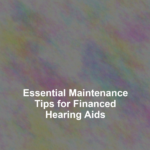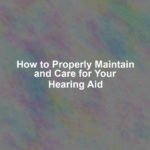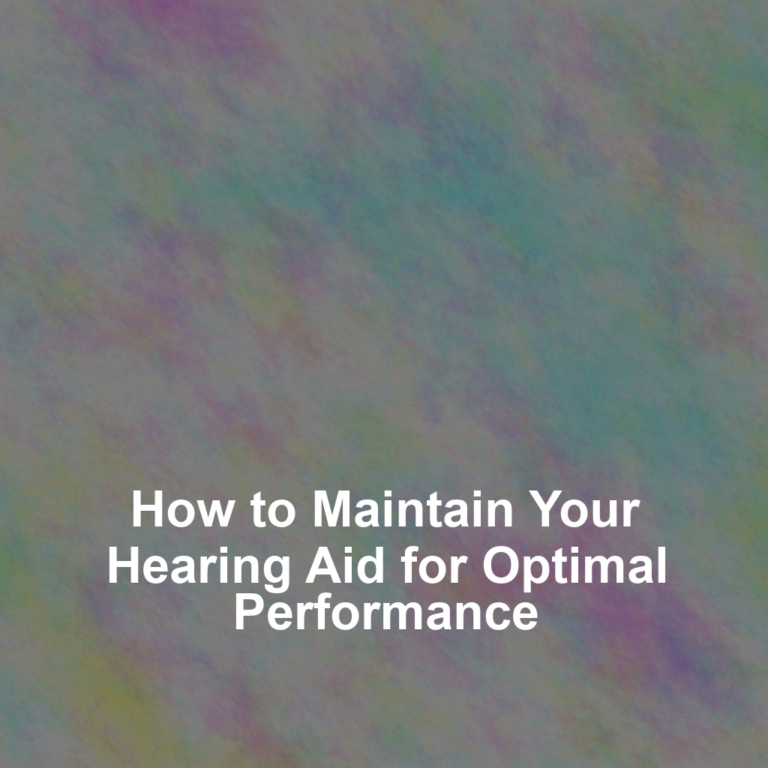YouG??ve invested more in your hearing aids than some people do in a small car, so itG??s only logical that youG??d want to protect that investment with the utmost care. As you navigate the complexities of maintaining these sophisticated, miniature sound amplifiers, itG??s essential to understand the ins and outs of daily upkeep.
From mastering the art of gently wiping away the dayG??s accumulation of dust and earwax to safeguarding the delicate electronics from the invisible enemy of moisture, each step you take can significantly extend the life of your device. But itG??s not just about the daily rituals; the longevity of your hearing aids also hinges on the less frequent, yet equally crucial, professional check-ups and the judicious management of battery life.
And when the day is done, where you store your tiny auditory companions can mean the difference between waking up to a day full of clear sounds or one filled with silence and frustration. Stick around to uncover the strategies that ensure your hearing aids remain in top-notch condition, serving you faithfully day in and day out.
Daily Cleaning Rituals
To ensure your financed hearing aids maintain optimal performance, itG??s essential to adopt a routine for daily cleaning. This can prevent repairs that mightnG??t be covered by your financing terms. Start every morning by wiping the surface with a soft, dry cloth to remove earwax and moisture accumulated overnight. DonG??t use water or alcohol-based cleaners, as they can damage the delicate electronics.
Check the earmolds for debris. If you find any, gently remove it with a soft-bristled brush designed specifically for hearing aids. Be careful not to poke into the microphone or receiver ports, as this could cause irreparable harm.
At night, store your hearing aids in a dry, cool place to avoid moisture build-up. Consider investing in a dehumidifier or drying container if you live in a humid climate. This extra step can prolong the lifespan of your devices and ensure youG??re getting the best sound quality every day.
Managing Moisture and Humidity
Building on the importance of daily cleaning, youG??ll also need to manage moisture and humidity to protect your financed hearing aids from potential damage. Even a small amount of moisture can wreak havoc on the delicate electronic components inside your hearing aids. To prevent moisture buildup, always store your hearing aids in a dry, cool place, away from bathrooms where steam and humidity are prevalent.
Consider investing in a dehumidifier specifically designed for hearing aids, which can greatly extend their lifespan. At night, when youG??re not wearing your hearing aids, place them in this device to dry out any moisture thatG??s accumulated throughout the day. If you donG??t have a dehumidifier, you can also use a dry aid kit or a drying container with desiccant to absorb the moisture.
Be mindful of changes in temperature, too. Going from a cold environment to a warm one can cause condensation. If that happens, itG??s crucial to dry your hearing aids as soon as possible. Avoid leaving them in direct sunlight or in your car on a hot day, as excessive heat can also damage the internal components.
Battery Care and Replacement
Ensuring your hearing aids are equipped with fresh batteries is vital for maintaining their performance and avoiding interruptions in your daily life. ItG??s crucial to understand when itG??s time to replace them. YouG??ll typically notice a dip in performance or a sound indicator signaling that battery life is low. DonG??t wait until theyG??re completely drained; change them promptly to ensure your device is always ready.
To extend your batteriesG?? life, turn off your hearing aids when youG??re not using them. Also, store spare batteries in a cool, dry place to prevent any potential damage from moisture or extreme temperatures. Remember, high humidity or direct sunlight can reduce their effectiveness.
When youG??re changing batteries, handle them with clean, dry hands to avoid corrosion and ensure they last as long as possible. Additionally, wait a minute after removing the tab before inserting the battery into your hearing aid. This waiting period allows air to activate the batteryG??s power fully.
Regular Professional Check-Ups
Scheduling regular check-ups with a hearing specialist can keep your financed hearing aids in top working condition and help catch any issues before they escalate. Imagine missing out on the laughter of your grandchildren or the soothing sound of rain against your window. ThatG??s what might happen if small problems with your hearing aids go unnoticed and worsen.
To ensure your hearing aids perform their best, consider the emotional benefits of these check-ups:
-
Knowing your device is functioning correctly
-
Assurance that you wonG??t miss important sounds
-
Continued Connection
-
Maintaining your social life without strain
-
Enjoying conversations and music without interruptions
DonG??t underestimate the importance of these professional assessments. TheyG??re your safety net, ensuring that your world remains full of the sounds you love. These visits often include thorough cleanings, adjustments, and firmware updates that you canG??t do at home.
Safe Storage Practices
Storing your hearing aids in a dry, secure place can significantly extend their lifespan and maintain their performance. Moisture is one of your deviceG??s worst enemies, so avoid bathrooms or other humid areas when youG??re not wearing them. Instead, invest in a hearing aid dehumidifier or a dry storage box. These specially designed containers will help keep moisture at bay, reducing the risk of damage.
YouG??ll also want to keep your hearing aids out of reach of pets and children. A curious dog or a playful toddler might see your hearing aids as toys, which can lead to unintended damage or loss. Find a high shelf or a dedicated drawer for safekeeping.
When youG??re not using them, turn off your hearing aids to conserve battery life. If youG??re storing them for an extended period, remove the batteries entirely to prevent corrosion. Just make sure to keep the battery compartment door open to allow any trapped moisture to evaporate.
Conclusion
Keep your financed hearing aids in top shape by sticking to a daily cleaning routine. Protect them from moisture, and change batteries promptly to avoid power issues.
DonG??t skip your regular check-ups with the audiologist to catch any problems early. Always store your aids safely when not in use.
With these simple steps, youG??ll ensure your hearing aids work perfectly for years to come, making the most of your investment in your hearing health.










